Junoon, Awaz and I got popular because of original songs not covers: Sajjad Ali
Pop star initiates free online music lessons for younger generation
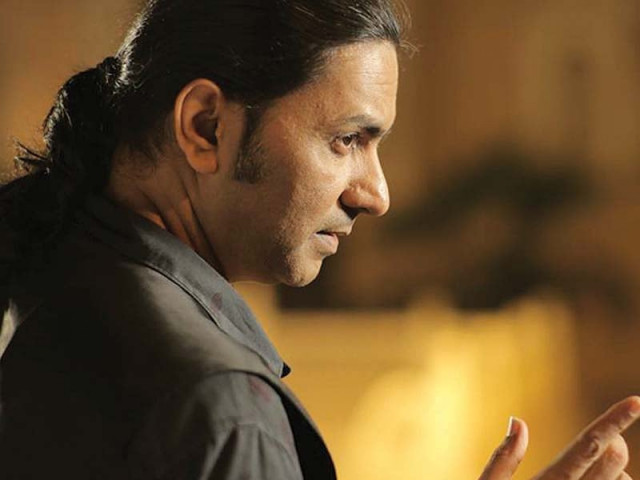
What has started with a vocal training lesson will eventually cover audio production, songwriting, mixing and many more aspects of music training. PHOTO: FILE
In the music industry, the Soundcloud stars have come up with some mind-blowing innovations in electronic and world music. To this, the daddies smirk and question, “But how many people actually know them?”
Sajjad Ali is also one of those daddies; he is a father to two sons, two daughters and a mentor to two generations of musicians. He is firm that unlike the many nagging parents of the industry, he has the solution to the big question.
“Junoon, Awaz and I got popular because of original songs not covers,” he told The Express Tribune over the telephone. “Why would anyone remember or even acknowledge your presence if you’re singing or producing what has already been done by so many people so many times.”
Be it the much recent Nakhun to Na Tum Samjhay, Ali has been one of the few artists who have released original tracks on a regular basis.
But his recent Coke Studio outing Tum Naraz Ho, one that introduced him to a new generation altogether, was a cover song as well. “It was my own song plus a song that many people hadn’t listened to before,” he responded.

Ali had the time of his life performing in Coke Studio and he considers the show’s audio and video production at par with some of the best in the subcontinent. The only area, he thinks, that can be improved is more original content. “They produce 90% cover songs and that is disappointing. That’s the only point where I disagree with their philosophy. I mean it’s good to preserve your folk traditions but not at the expense of wasting or not discovering fresh talent.”
He was also offered to produce an episode of Coke Studio 9 which he refused, stating newcomers should get a chance. “Even if it has to be, I’d produce an entire season of Coke Studio and not just one episode. Episodes are for young guns and not for veterans.”
He recently launched Sajjad Ali’s Masterclass, a series of online tutorials for upcoming singers and musicians. What has started with a vocal training lesson will eventually cover audio production, songwriting, mixing and many more aspects of music training at large.
“There are a number of things that are no longer applicable and are being taught to upcoming musicians. There’s a lot that can still be learned.” The master class is an attempt to help newcomers find their true calling by sticking to traditional ways of training, yet breaking away from them.
“Even some of your professional singers make glaring mistakes while singing and they’re not aware of it. Everyone tries to imitate another known singer without recognising his or her own strength.”
What Ali is trying to do is already being done formally in academies that teach performing arts and schools that give lessons in instrument playing and singing. Does he not agree with their curriculum? “The job of the academy is to give guidelines and they do that. It is the job of TV channels to promote artists and they are not doing that,” he replied.
Ali does have a few reservations about the way things are being taught at academies but he won’t hold them accountable for anything. “Imagine if even these weren’t there?”
At the same time musical legacies or gharanas are often blamed for not taking students outside of their families. There protective attitude towards the craft has left many passionate musicians heartbroken.
“It is because of gharanas that we are recognised all around the world. Classical music, sufi music, qawwali have all been taken forward by gharanas,” Ali quickly dispelled the notion. “With learning, it’s always a two-way traffic. I remember a kid came up to me, asking to be trained in classical singing because he wanted to sing at a cousin’s mehndi. I refused to train him because he was not taking it seriously.”

Ali said learning to sing requires a change of lifestyle, behaviour and an overall approach towards life. The craft needs to be taken seriously for the student to be taken seriously.
The resurgence of Pakistani cinema has also given a new life to the struggling music industry. Bands are reuniting and Indian singers are crossing borders all because of a vibrant film music scene in Pakistan. Ali, on the other hand, who has himself worked on music of films such as Aik Aur Love Story and sung for Bol and Na Maloom Afraad, is quite disappointed with the state of affairs.
“I am very sorry to say but the film music scene in Pakistan is quite hopeless,” exclaimed Ali. “Film music is meant to make the audiences celebrate, take their shirts off and enjoy. Name one truly popular song from a recent Pakistani film and I’ll change my statement.”
Ali asserted that there’s a lot of talent in Pakistan but despite the so-called revival, we have failed to think big, think cinema. “The music producers are applying the drama OST approach to the big screen and that is failing because it’s a different medium altogether. For songs to be great, you have to think larger than life.”
Like always, we take refuge in our glorious past, where Ali believes lay the real legacy of playback singing, a style not usually associated with Pakistan.
He is of the view that the likes of Ahmed Rushdi, Masood Rana, Naheed Akhtar, Mehnaz Begum were unmatched. “India only managed to produce three playback singers, Rafi, Kishore and Lata, and if you push it, we can make some space for Asha and Manna Dey. All the Sonu Nigams and Udit Narayans are newer versions of Rafi sahab. There’s nothing original about them.”
Let’s hope that Ali’s master class manages to add something to the legacy that we all are so fond of.
Published in The Express Tribune, July 23rd, 2016.
Like Life & Style on Facebook, follow @ETLifeandStyle on Twitter for the latest in fashion, gossip and entertainment.

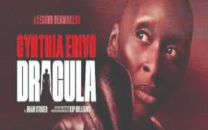


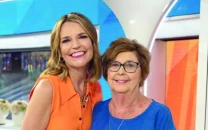
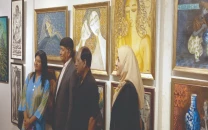
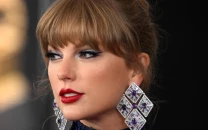












COMMENTS
Comments are moderated and generally will be posted if they are on-topic and not abusive.
For more information, please see our Comments FAQ